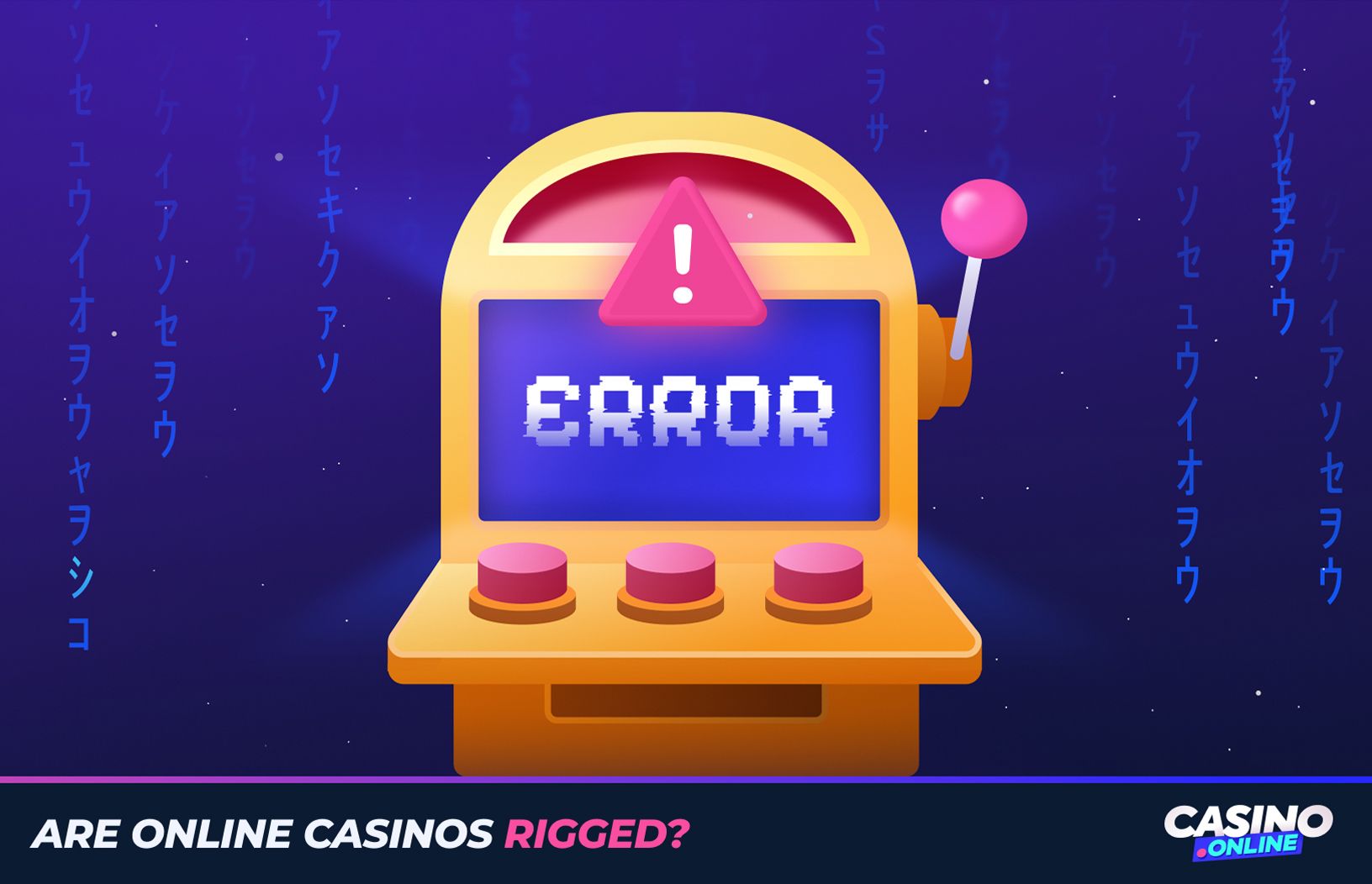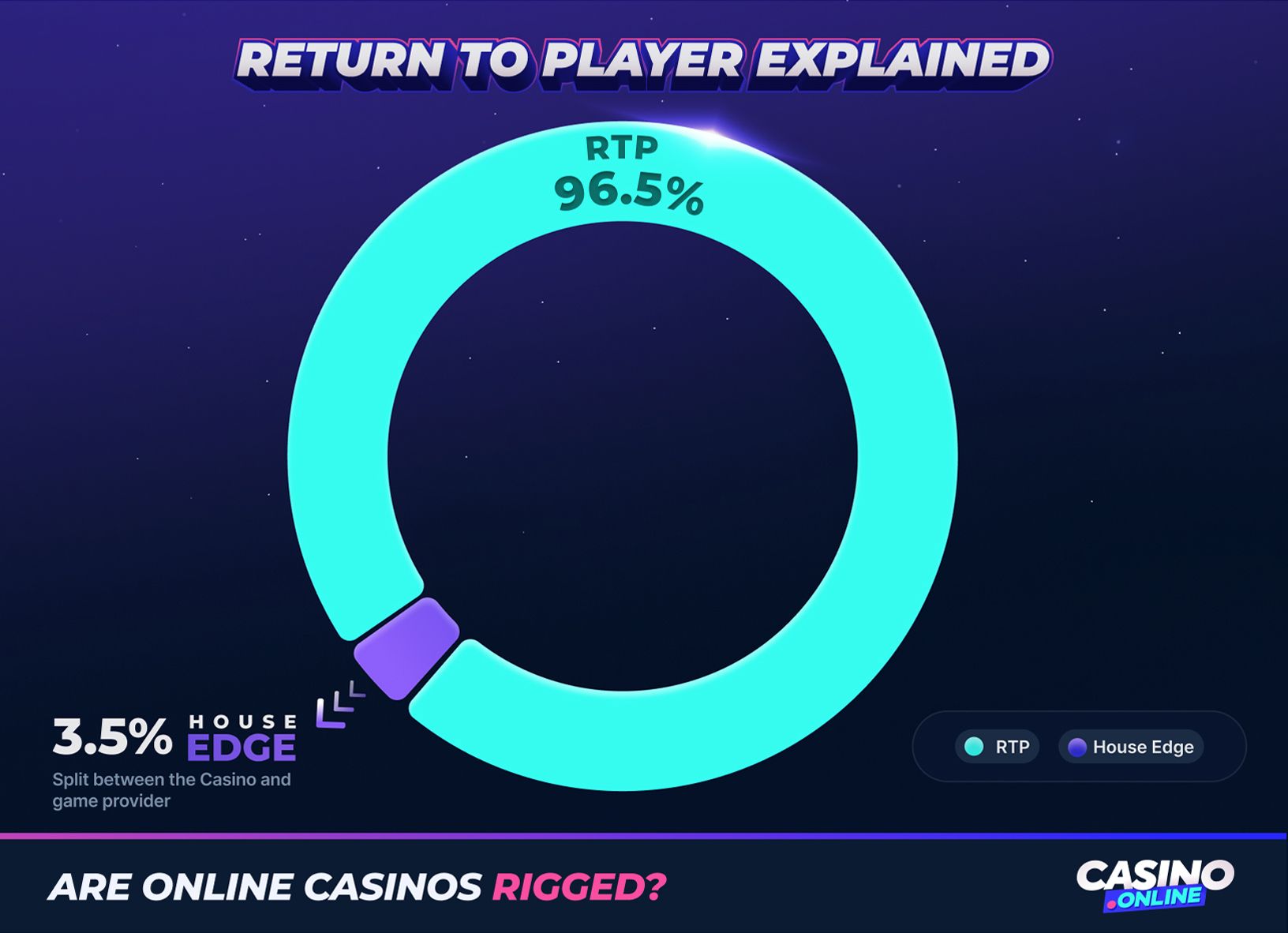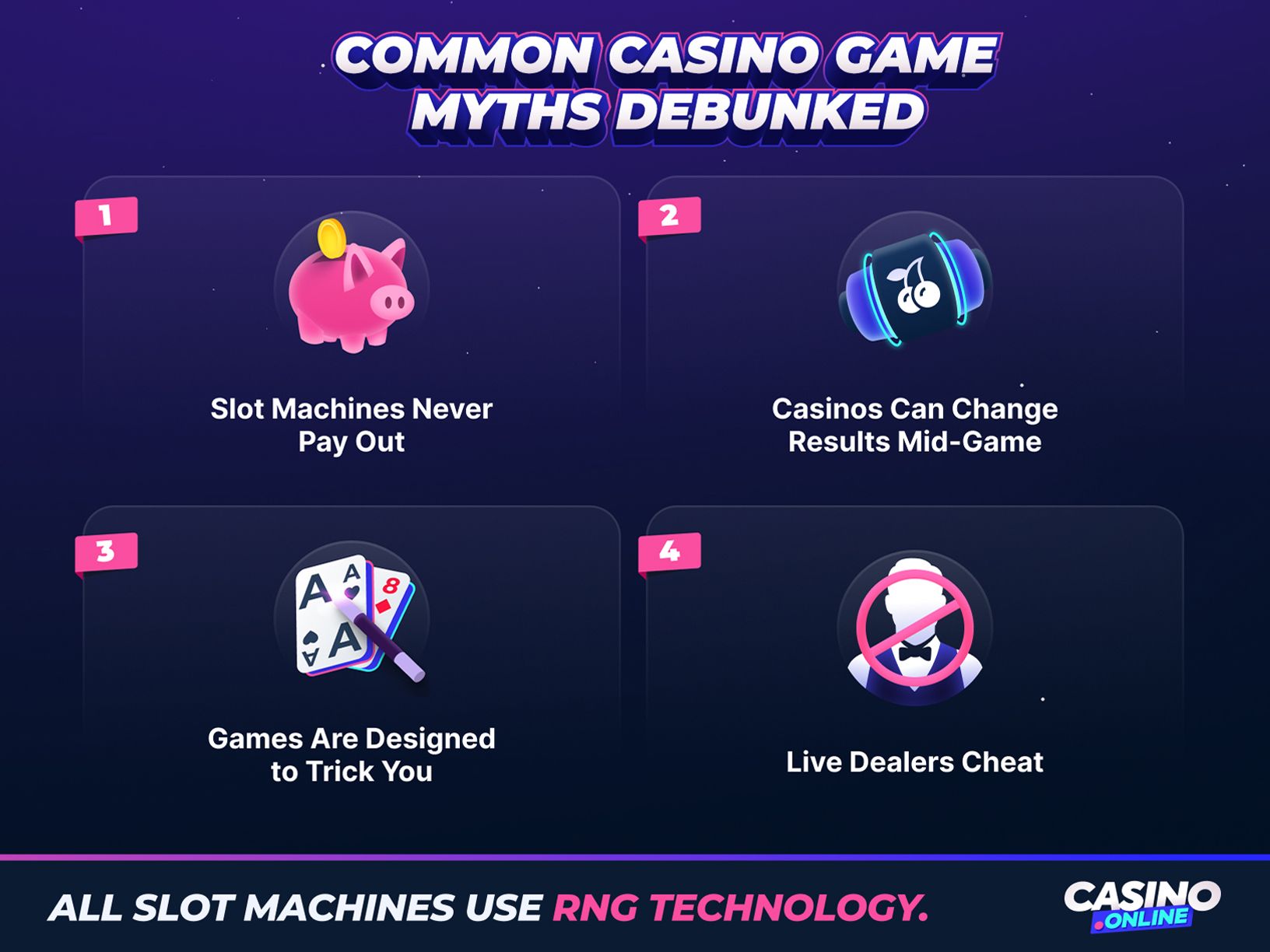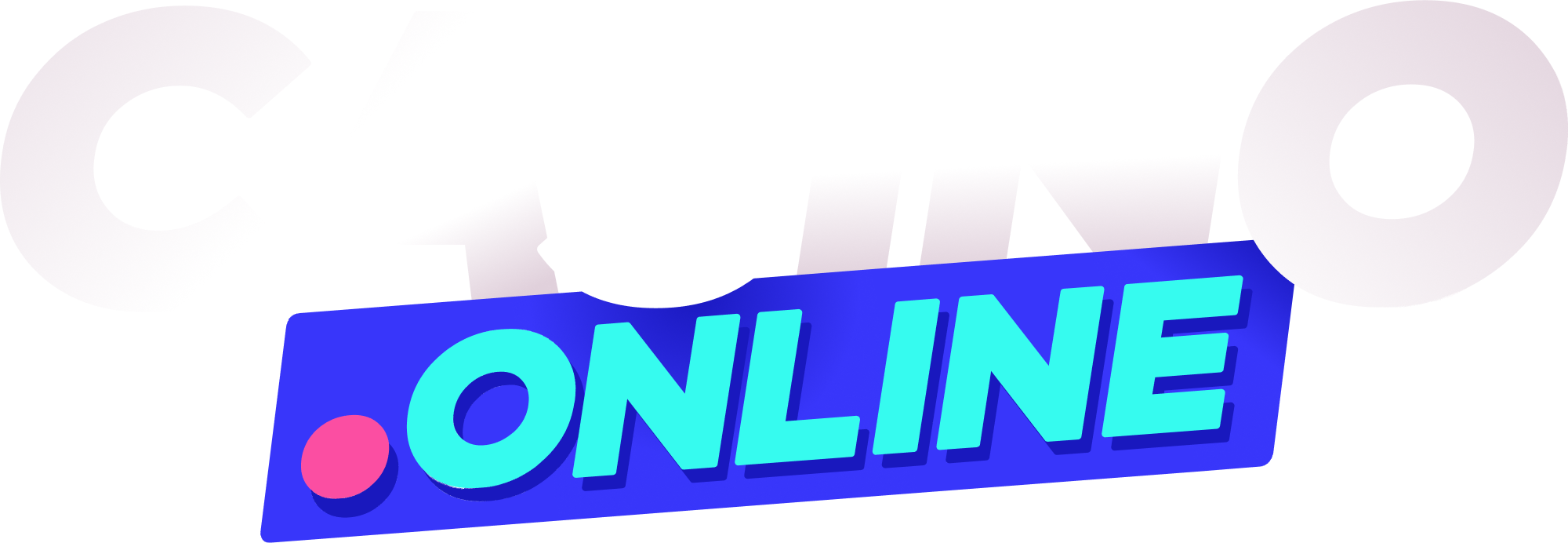
Are Online Casinos Rigged? The Truth You Need to Know
Article by
Updated by Alejandro Dalby Dec 19, 2025
Trusted and licensed online casinos are not rigged. Fair play is enforced through strict regulation and independent audits that protect players. Beware rogue casinos or shady operators - that's where real risks hide.
Key Takeaways
Introduction: The Suspicion Behind the Spin
Whether spinning reels on online slots or watching a turn of European roulette, many players wonder if the vast majority of online casino games are rigged. Rumors hold water. Does the casino expect you to lose more than your fair share? This doubt is normal in online gambling, but the truth is that legit casinos operate on completely random algorithms with a mathematical advantage built into the house edge - not through cheating.
Having worked across multiple online gaming companies, I've seen firsthand that the games are built to be fair games where players have a real shot, especially in slot games with features like progressive jackpots that can pay out life-changing sums.
Why This Guide Matters
This article helps you understand how licensed casinos and reputable operators build a solid reputation by ensuring fairness, debunking myths about rigged casino games, and highlighting how to play smart with trusted providers offering fun, fair titles.
.jpg)
What Does "Rigged" Really Mean?
When people say a casino is "rigged," they usually mean the games are fixed to steal money beyond what the house normally makes. So instead of just being hard to win, they're actually cheating you.
I've been around this business long enough to hear crazy stories - magnets in roulette wheels, slots that somehow know when you're about to hit big. But here's what I've learned from actually being on the inside: real casinos don't need to cheat. They already make plenty from the house edge that's built into every game.
That said, sketchy casinos do exist. These fly-by-night operations without proper licenses will mess with game code, lower payouts, or fake results to steal from players.
Here's the thing, though - in places with real regulation, this stuff leaves traces. Auditors find it quickly, and when they do, these places get hammered with fines, lose their licenses, or get shut down completely. So if you stick with licensed casinos that have good reputations, the games work like they're supposed to.
Look, I get it - losing sucks, and it's easy to think something's wrong when you're on a bad streak. But most of the time, you're just having rotten luck. The math works out over time, even if it doesn't feel that way when you're losing. There's a big difference between bad variance and actual cheating.
How Casino Games Stay Fair: RNGs, House Edge, Actual Hold
From early experience with slot games at venues to now monitoring audits, the lesson stays the same: casinos profit thanks to a transparent built in house edge, not cheating.
Random Number Generators (RNGs)
Think of RNGs as the invisible croupiers of online casinos. They're complex algorithms churning out sequences of numbers that determine every card dealt, reel spun, or dice rolled - completely random and impossible to predict. This keeps games fair, ensuring neither players nor casinos can manipulate outcomes. These RNGs are regularly put through the wringer by independent labs like eCOGRA and GLI, guaranteeing their trustworthiness.
Actual Hold
Think of this as the casino's real take-home pay after the chips settle. It's the actual percentage the casino makes in practice, factoring in how different players play, their bet sizes, and the inevitable ups and downs - or variance - you see in real sessions. This contrasts the theoretical hold, which is more of a math model number predicting profit over the long run. The actual hold can bounce around in the short term, but over thousands of rounds, it tends to stabilize.
Game's RTP
RTP is your friendly, published promise from the casino: for every €100 wagered on a game, approximately €95 to €98 gets returned to players over time. The key phrase here is over time - short sessions might wildly deviate, but in the grand scheme, RTP helps set expectations straight. Always check RTPs before you play, and make sure they line up with industry standards. Games offering drastically low RTPs or hiding those numbers should raise red flags, as this could mean you're dealing with a rogue operator.

Casino Games
.jpg)
Regulatory Safeguards: How Licensing and Audits Protect Players
When it comes to licensed online casinos and their brick-and-mortar counterparts, the phrase "licensed" isn't just a sticker on the website or a name dropped in ads. It stands for a rigorous, no-nonsense process that operators must survive to legally offer their services.
The licensing process: No room for shortcutting
Getting a license from the likes of the UK Gambling Commission (UKGC), Malta Gaming Authority (MGA), or the Gibraltar Gambling Commission means opening your entire operation up to serious scrutiny. Regulators dive deep into your company's structure, financial health, and the people in charge - a background check more thorough than any job application you've ever tackled.
They want to be sure:
- Your software is legit, certified, and properly audited - no sneaky behind-the-scenes fiddling.
- Your bank references and financial stability stand up against scrutiny.
- Anti-money laundering policies and responsible gambling protocols are rock solid.
- You're playing by the legal book from top to bottom, including measures to keep underage players out.
These aren't mere formalities; they form a foundation of trust between you and every player who walks through your digital door.
Why licensing matters: More than just a badge
Licensing does a lot more than add a gloss of legitimacy. Here's why you want to see it before you play or recommend any casino:
- Player Protection: Regulated casinos are required to install safeguards - from deposit limits to self-exclusion and transparent terms - to keep players safe.
- Game Integrity: Independent testing labs such as eCOGRA, GLI, and iTech Labs keep a watchdog eye on RNGs and game's RTP ensuring games are always completely random and payout as advertised.
- Legal Support: If something goes sideways, players at licensed casinos have avenues for legal recourse via the regulator - something unavailable at unlicensed or rogue casinos.
Ongoing audits & enforcement: The watchdog never sleeps
Getting a license is just the opening act. Casinos must constantly submit to audits, not just by third-party labs but also by their licensing authority itself. Those deep dives include:
- Reviewing the game code and payout reports
- Verifying RNG and algorithm certificates
- Checking player transaction records for consistency
Skip or cheat here, and fines are hefty, licenses get revoked, and worse yet, the operator finds itself publicly blacklisted.
And regulators don't rest - they keep updating standards to overcome tech changes and emerging risks, ensuring players are protected in a rapidly changing online gaming landscape.

Opinion of Andrew Collins
“With these regulatory safeguards in place, players get a fair game experience protected by law and backed by ongoing monitoring. Unlicensed operators simply don't have this infrastructure. So when the next suspicious rumor about rigging pops up, remind yourself to stick to those with a license - they're the real deal.”

Brick and Mortar Casinos: Are Physical Games Rigged?
You might think it's easier to rig a physical game, maybe a crooked roulette wheel or loaded dice. But today's land-based venues are locked down tighter than Fort Knox.
They use HD cameras pointed at every table and slot machine, and AI software that watches patterns like hawks. Dealers get intense training to spot cheats and sleight of hand. Plus, equipment like tables, wheels, and dice are regularly inspected, cleaned, and rotated to stop any funny business.
Tracking the actual hold rates in physical casinos is just as robust, with financial audits ensuring that what the casino expects to make aligns with what actually flows through.
For the nitty-gritty on licensing and audit rigor, take another look at the Regulatory Safeguards section above. These systems apply to both online and offline worlds and protect players everywhere.
Game Providers: Trust the Source for Fair Play
Not all casino games are created equal. Quality slot games and other casino games come from trusted software providers like NetEnt, Playtech, and Microgaming, who submit their releases to a formal certification procedure involving:
Choosing casinos offering software from these providers drastically reduces risks from shady operators and scam casinos.
Rigging Through the Ages: What History Taught Us
The journey of casino fairness has been anything but smooth. From the days of old - when rigged wheels and loaded dice were the norm - the industry has learned some hard lessons. Back in the early days, cheating was almost considered part of the game. I remember stories from my early casino days about how some wheels in shady spots had hidden magnets, or dice were carefully weighted to favor the house.
Modern casinos are like high-tech fortresses these days. Walk into any casino floor or log into a reputable online site, and you're stepping into a world where tiny RFID chips are secretly tracking every bet, and AI cameras are watching every move with eagle eyes that would put even the sharpest security guard to shame.
But here's the thing, all this James Bond-level technology isn't just there to catch card counters or cheaters. It's actually working around the clock to protect you too. If someone tries to pull a fast one or mess with the games, these systems spot it instantly.

Opinion of Andrew Collins
“Trust me, modern casinos know that a solid reputation built on fairness is worth far more in the long run than any short-term gains from cheating.”

Scandals
Common Rigging Myths Debunked
.jpg)
Many rigged casino myths arise from misunderstanding the built-in house edge and natural randomness. Common misconceptions claim:
The reality is that casinοs make a profit from the mathematical advantage in the long run, balanced by random outcomes. The theoretical hold keeps the business sustainable, but doesn't equate to cheating.
Online Casino Rigging: What's Real and What's Not?
Modern online casino games are continuously audited to ensure fairness. Features like provably fair crypto casinos give players unprecedented transparency through blockchain verification. Here's how fairness is ensured:
Random number generators that actually work
Look, independent labs test the casino's software to make sure the games aren't rigged. It's not some quick once-over either - these testers really dig into the code to verify that wins and losses happen randomly like they're supposed to.
You can check your results yourself
Some casinos, especially the crypto ones, let you verify your own game results. Basically, they give you the tools to confirm that your terrible luck streak was actually just bad luck, not the casino cheating you.
Independent monitoring
Third-party companies keep an eye on casinos to make sure they're not tampering with games behind the scenes. These aren't casino employees - they're outside firms whose job is catching any funny business.
Everything gets documented
All the game data gets recorded in detail, so if there's ever a dispute, regulators can go back and see exactly what happened with any particular spin or hand.
How to Spot Scam Casinos
Protect yourself by watching for these red and green flags
Missing or unverifiable audit seals
Slow or suspicious withdrawals
Vague or punitive terms and conditions
Games "glitching" or displaying impossible patterns
Poor or fake reviews (avoid absence of unbiased reviews)
VS
Transparent, verified licensing
Clear game's RTP and payout disclosures
Regular third-party audits
Responsive customer support and prompt payouts
Responsible Gambling and Player Protection
Good casinos don't just focus on fairness - they also prioritize your well-being. The safest sites offer:
- Deposit and loss limits
- Self-exclusion tools
- Transparent terms and conditions
- Responsive, 24/7 customer support is ready to resolve issues quickly
- Clear links to responsible gambling resources and helplines

Opinion of Andrew Collins
“Remember to play smart and prioritize fun over chasing wins.”
The Bottom Line
Look, I get it, nobody wants to deal with casino drama on top of already losing money. Here's some real talk: go with the big names that actually have their paperwork in order and a track record you can trust.
Yeah, you're still going to hit those awful cold streaks where nothing goes your way (we've all been there, it's just part of the game). But at least when you're having one of those nights, you won't be lying awake wondering if the casino itself is screwing you over.
There's nothing worse than finally hitting a win and then having some sketchy operation give you the runaround when it's time to cash out. Save yourself that nightmare and stick with places that have actual licenses and won't disappear with your money overnight.
Trust me, you've got enough to worry about with the games themselves - don't add "is this place even legit?" to your list of concerns.

Opinion of Andrew Collins
“Before you sign up anywhere, do yourself a favor and check out some honest reviews and look up what the gambling regulators have to say. A few minutes of research up front can save you a lot of trouble down the road.”

Casino.online
FAQ - Are Casino Games Rigged & More
Are online casino games rigged at reputable sites?
No. Licensed online casinos and top brick and mortar venues maintain strict control and oversight with independent testing.
Can rigged online casino allegations be proven?
100% YES, but it requires hard data, not just bad luck streaks. Licensed operators must provide game logs during regulatory investigations. Real rigging leaves digital fingerprints that forensic audits can detect. Most allegations collapse under scrutiny because players confuse variance with manipulation. Stick to regulated sites with transparent auditing.
How does the casino's RTP affect your chances?
RTP is your theoretical return over millions of spins. A 96% RTP slot returns €96 per €100 wagered long-term. Short sessions vary wildly due to variance, you might win big or lose everything regardless of RTP.
What legal options or legal recourse exist against unfair casinos?
If it's a licensed casino, complain to their regulator (like UKGC or MGA) or try dispute services like eCOGRA. You could also sue, but that's expensive. If it's unlicensed? You're probably screwed. Always save screenshots and documents as proof.
Why does the built-in house edge exist, and how does it impact play?
House edge ensures casino profitability - it's transparent math, not cheating. Blackjack: 0.5%, slots: 2-10%. This statistical advantage means you'll lose long-term, but short sessions can still produce wins through variance.
What makes a casino a fair game operator?
A real license, games that aren't rigged, outside companies checking their work, telling you the actual odds, no sneaky fine print, paying out when you win, and following the rules. Good casinos don't care if regulators look over their shoulder.
How can you verify a casino's solid reputation?
Check licensing with issuing authority, verify audit seals, read player reviews across multiple sites, test withdrawal speeds, confirm game provider legitimacy, and review complaint history with regulators. Trust but verify everything.
Are progressive jackpots rigged?
Not at licensed casinos. Progressives use the same certified RNGs as regular games. The massive odds are transparent; Mega Moolah hits roughly once per 50 million spins. Unlicensed operators might fake progressive displays, though.
What role do game providers play in casino fairness?
Everything. Providers like NetEnt, Microgaming, and Playtech undergo rigorous testing and certification. Their software determines game fairness. Unknown or unlicensed providers pose real rigging risks, always verify the developer's credentials.
Are other games besides slots subject to rigging?
Potentially, but it's rare at licensed sites. Live dealer games face camera surveillance, table games use certified software, and sports betting follows regulated odds. Historical rigging involved physical manipulation, harder with modern digital oversight.
How can you know a single game is completely random?
Look for testing lab stamps from GLI or iTech Labs, check if the game maker has proper licenses, and read their audit reports. Random means your last spin doesn't affect the next one, there's no "hot" machines or overdue jackpots.
What should you watch out for to avoid shady operators?
No license, sketchy game makers, slow payouts, fake certificates, bonuses with impossible terms, tons of complaints about the same problems, and casinos based in weird places. If something feels off, just leave - plenty of good ones exist.
Are licensed online casinos always fair, and how does casino reputation affect trust?
Licensed casinos get checked regularly and have to prove their games work right, but nothing's perfect. Check what other players say in reviews too. Good casinos pay fast, follow rules, and don't hide from questions. Bad ones mess up even with licenses.

Written by
Andrew Collins
Author
I've spent over nine years at five leading iGaming firms - and long before that, I was emptying slots and balancing takings since 1992. From diving deep into slots and unearthing hidden betting strategies, I deliver witty, actionable advice that even seasoned bettors appreciate. Ready to elevate your play with me and casino.online? Let's get started!

Facts checked by
Alejandro Dalby
Content Writer & iGaming Specialist
I'm an experienced writer specializing in casino games. My journey in the iGaming industry has equipped me with a deep understanding of gaming strategies and market trends. I'm here to share my insights and help you navigate the exciting world of online gambling.



